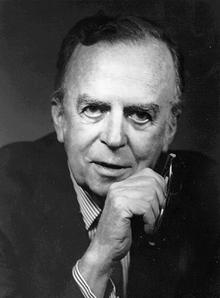

![]()
Professor Emeritus and Senior Lecturer Joseph C. R. Licklider, 75, died June 26, 1990, following complications from asthma. Born in St. Louis, Missouri and educated at Washington University and the University of Rochester, Professor Licklider came to MIT in 1950. Previously, he had worked at Harvard University's Psychoacoustics Laboratory, where he discovered that "clipped speech" (produced by limiting the amplitude of speech waves) was 70-90 percent intelligible. Professor Licklider's background was in the psychology of communications, and he played a major role in stimulating linguistics research at MIT while contributing to the study of biological aspects of communication. He lectured on the neurophysiology of vision and hearing, the perception of speech, and the presentation and assimilation of information.
At MIT, he was affiliated with RLE, the Acoustics Laboratory, the Department of Electrical Engineering and Computer Science, and the Department of Economics and Social Sciences. He was also co-head of Lincoln Laboratory Group 31. From 1957-62, he worked at Bolt, Beranek, and Newman, where he became a vice president. In 1960, he published the seminal paper Man-Machine Symbiosis, which proposed the concept of a greater role for computers; people and machines could interact to solve problems, not only to perform mathematical calculations. Professor Licklider was instrumental in developing computer time-sharing research at MIT and encouraged the start of computer science studies in the Electrical Engineering Department. His career also included tenures at the Defense Department's Advanced Research Projects Agency, the agency's Information Processing Techniques Office, and IBM Corporation. He returned to MIT and was appointed Associate Director of Project MAC (now the Laboratory for Computer Science), where he subsequently became Director. Professor Licklider retired from the MIT faculty in 1985. Professor Licklider was a former president of the Acoustical Society of America. In March 1990, he received the Common Wealth Award for Distinguished Service from a Delaware humanitarian trust for his work in computer networking and the interaction between humans and computers.
Photo by Koby-Antupit